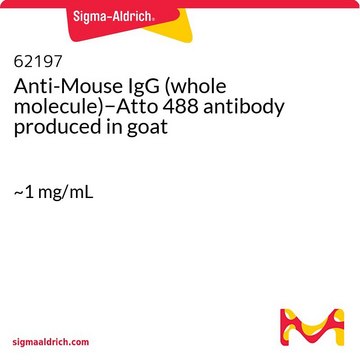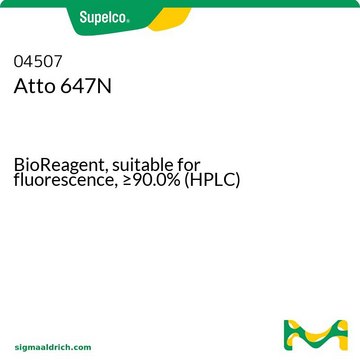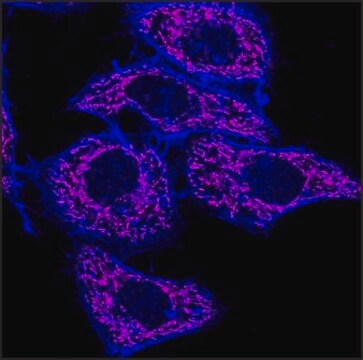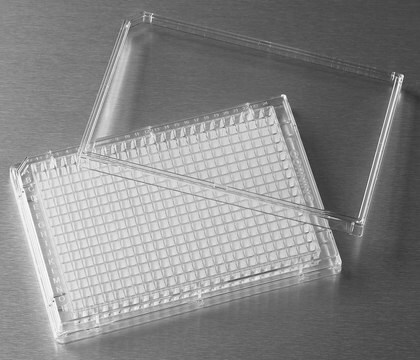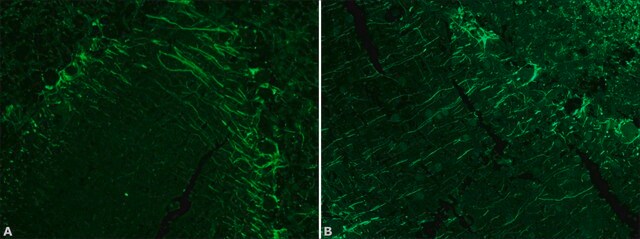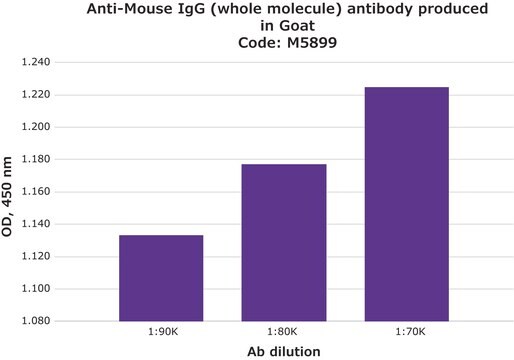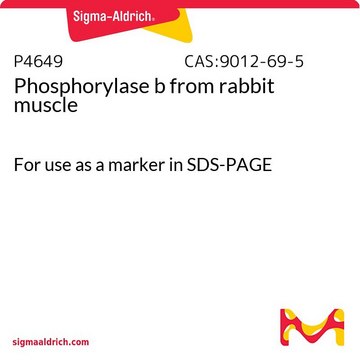50185
Anti-Mouse-IgG - Atto 647N antibody produced in goat
contains 50% glycerol as stabilizer
Synonym(s):
Atto 647N-Anti-Mouse-IgG antibody produced in goat
About This Item
Recommended Products
conjugate
Atto 647N conjugate
Quality Level
antibody form
affinity isolated antibody
antibody product type
secondary antibodies
clone
polyclonal
contains
50% glycerol as stabilizer
species reactivity
mouse
concentration
≥0.8 mg/mL IgG
technique(s)
immunofluorescence: 5 μg/mL
fluorescence
λex 647 nm; λem 665 nm in PBS
suitability
in accordance for fluorescence
shipped in
wet ice
storage temp.
−20°C
target post-translational modification
unmodified
General description
Immunogen
Application
Western Blotting (1 paper)
Physical form
Analysis Note
Legal Information
Disclaimer
Not finding the right product?
Try our Product Selector Tool.
Storage Class Code
10 - Combustible liquids
WGK
WGK 3
Flash Point(F)
Not applicable
Flash Point(C)
Not applicable
Personal Protective Equipment
Choose from one of the most recent versions:
Already Own This Product?
Find documentation for the products that you have recently purchased in the Document Library.
Customers Also Viewed
Articles
Immunoblotting (Western blot transfer) is a common technique in modern proteomics research.
Our team of scientists has experience in all areas of research including Life Science, Material Science, Chemical Synthesis, Chromatography, Analytical and many others.
Contact Technical Service


